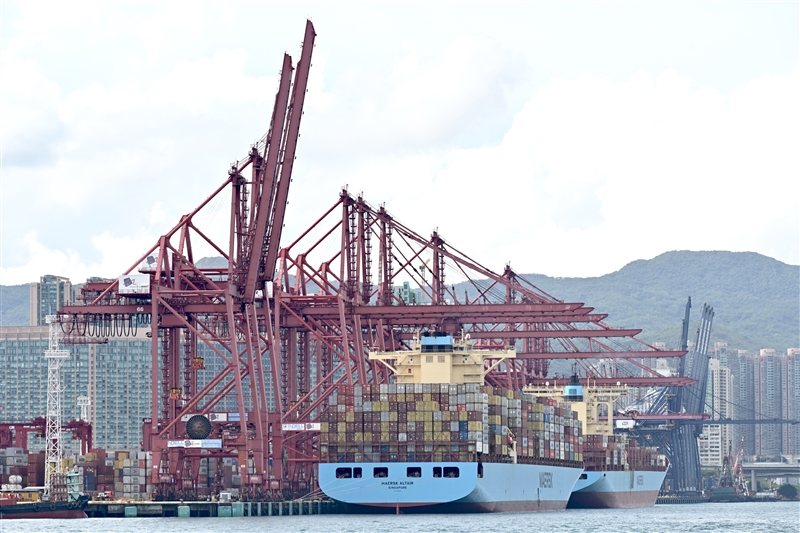
Exploring new markets is high on the agenda of Hong Kong’s leading exporters as the “regionalization” of the global economy continues in response to the uncertainty surrounding US tariffs.
During an interview with China Daily on Thursday, Wingco Lo Kam-wing, president of the Chinese Manufacturers’ Association of Hong Kong, said, “In the long run, our exporters should realize that the world economy will be regionalized,” and the CMA’s advice is to diversify supply chains and explore new markets.
“Many exporters among our members are concerned about fluctuating US tariffs. They will suspend trade with the US during this period, and see what will happen next,” Lo said.
READ MORE: US slammed for further imposition of tariffs on HK products
“In fact, the Sino-US trade volume through Hong Kong has been gradually decreasing since the trade friction began in 2018,” he added. The US’ market share of Hong Kong’s total exports shrank from 8.6 percent in 2018 to 6.5 percent last year, accounting for $37.9 billion in merchandise.
To counter the risk, many manufacturers have established various supply chains in Southeast Asia or South America, which has helped them partially avoid US tariffs over the past several years and sustain their trade with the US, according to Lo.
However, he said, the risk of similar factory transfers has become relatively higher now that the US has threatened significant tariffs on these locations, including Vietnam, Cambodia and some South American countries, before announcing a 90-day “pause” on Wednesday.
Fortunately for the industry, Lo said, the timing is currently an off-season for Hong Kong’s exports to the US, which could mitigate some of the adverse effects of the tariff war to some extent.
Speaking of potential new markets, Lo highlighted the Middle East and Chinese mainland markets as important targets. “We will organize a business delegation to Saudi Arabia, Kuwait, and Qatar in May. Additionally, CMA Testing, an affiliated organization of the CMA, has introduced halal certification and training services to help Hong Kong businesses tap into the halal market.”
The CMA also plans to visit Beijing and other cities this year to explore sales opportunities on the mainland, Lo said.
“No one will be a beneficiary in this trade war, and it could lead to a global economic recession,” Lo said. “Even the US cannot benefit because its industry has a hollowing-out problem; many essential products, like daily necessities and medical items, rely on imports from China.”
Frank Leung Yat-cheong, permanent honorary president of the Federation of Hong Kong Footwear, agrees that new-market exploration should be prioritized, urging the exporters to realize that the US “is not a market for them anymore”.
ALSO READ: HK leader vows to promote free trade, help firms overcome US tariffs
Leung moved 90 percent of his business to Africa several years ago, which has spared him some of the losses others have suffered amid this turmoil.
“My advice to manufacturers who may have incurred significant losses is to find partners with factories in places where tariffs are less affected, and then find new markets,” Leung said. He believes the best approach is to “start over in new markets”, even though it requires extra time and funds.
To bolster manufacturers exploring new markets in order to survive the ongoing difficulties, Leung called on the Hong Kong government to increase related financial support, such as through the SME Export Marketing Fund. “It takes four to five years to achieve profitability for a new factory in a different place, so the government’s support is very important,” he said.
thor_wu@chinadailyhk.com


